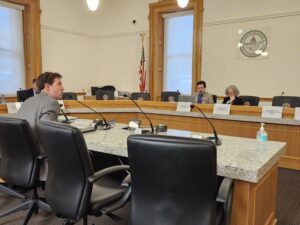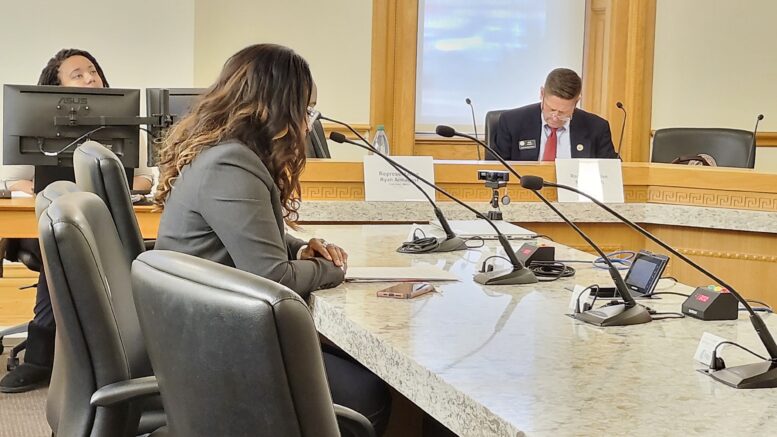A Colorado bill to ban “junk fees” is headed to the legislative trash heap after backers and tech industry leaders could not agree on several crucial details with only three weeks left in the 2024 session.
But it’s likely to return in the future.
While House Bill 1151 passed the Colorado House on March 25 along a largely party-line vote, business-community opponents did not oppose the idea so much as caution that it must be implemented precisely to avoid harming a wide range of companies. But negotiations about its specific provisions seemed to grind to a halt in recent weeks, and sponsoring Sen. Tony Exum, D-Colorado Springs, decided on Tuesday just to kill it.
The measure targeted mandatory fees placed on customer bills by companies, such as increasingly common hotel resort fees, surcharges on ticket purchases for events and fees added to personal banking transactions. HB 1151, sponsored by Democratic Rep. Naquetta Ricks of Aurora, did not seek to ban those fees but to force companies to include them in the advertised price of goods and services rather than tack them on and surprise customers at the end of transactions.
Debate about junk fees growing nationally
Colorado was not the first state to target the fees. But none of the four states that have passed similar laws have implemented them yet. Many people are closely watching a California statute will go into effect on July 1.
Ruthie Barko, executive director for the central U.S. of industry group TechNet, noted that HB 1151 was that it contained several provisions not seen elsewhere. And it was those requirements that led to an impasse, she said.
Many questions revolved around the broad language in the bill stating that a person shall not knowingly or recklessly advertise a price for a product, good or service unless the price includes “all mandatory or nondiscretionary fees or charges.”
Bill backers said this should be interpreted as any charge that a buyer must pay regardless of the choices they make in purchasing, such as later-revealed hotel resort fees. But business groups said this left a lot of room for interpretation.

Danny Katz, executive director of the Colorado Public Interest Research Group (CoPIRG), testifies on Feb. 28 for the proposed “junk fees” ban.
Blurry details on what constituted junk fees
Companies questioned, for example, how subscription fees would have to be accounted for in overall prices or how they were supposed to interpret the exemption for postage fees that were “reasonably” incurred, Barko said. They asked for further clarity but after nearly a month of talks didn’t see a path forward.
Danny Katz — executive director of the Colorado Public Interest Research Group (CoPIRG), which worked closely with Ricks in writing the bill — said that while the two sides worked to clarify what fees are non-discriminatory, they couldn’t nail down exact definitions. There were enough nuances to the law that they felt they were running out of time and decided to let the bill go for now, so that they could have more time to work on differences over the interim between sessions, he said.
“It’s definitely disappointing where you have a good idea and it doesn’t come together during the legislative session,” Katz said in an interview on Wednesday. “It seems like it may be something that is easy to articulate, but we couldn’t land on quite the right wording.”
What comes next
Barko said that they worked in good faith to find consensus but ran out of time in a session where both the bill’s sponsors and the tech industry are dealing with a deluge of big issues. She said she would prefer a federal solution that governs multistate businesses the same no matter where they are making sales — differing in that sense from Katz, who said he believes that state can attack the issue more quickly — but remains open to future talks.
“We had tried to get the sponsors to understand that concerns we had were shared by companies outside the tech industry too,” Barko told The Sum & Substance. “I think the longer this went on, the message was that it was just really unenforceable.”
Katz said he will watch the implementation of the California law closely to see if there are aspects of the Colorado bill that can be improved upon based on issues that could emerge from that state. Like other consumer-focused proposals his group has pushed — such as the digital electronics right-to-repair bill still making its way through the General Assembly — he expects the issue to increase in popularity as more residents learn about legislative efforts, he said.
